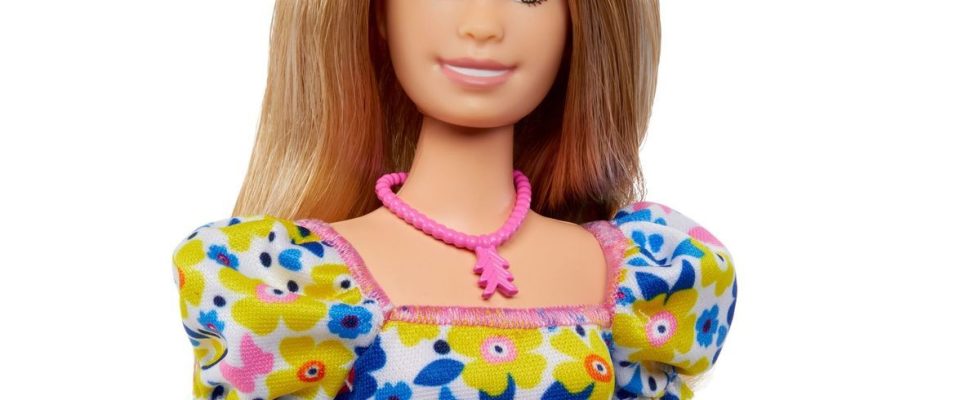Published on
Updated
Reading 2 mins.
Mattel, maker of the Barbie doll, has just launched a brand new model. It is a Barbie doll taking on the features of a person affected by trisomy 21. A way, according to the brand, to continue its action in favor of diversity and inclusion.
It is a doll in the image of several thousand children around the world, affected by the handicap of trisomy 21. Indeed Mattel, the famous toy manufacturer, has just announced on April 25 the upcoming sale of a doll with the features of a person affected by trisomy 21, on the Amazon site at a price of 12.99 euros.
A doll made in collaboration with people with disabilities.
To develop this particular model, the brand explains that it worked “in close collaboration” with the American organization for Down syndrome. The objective: to define as precisely as possible the physical characteristics of a person affected by this syndrome.
Thus, the doll is smaller than the average Barbie, has a longer torso compared to the rest of her body, smaller ears, a flat nose bridge and almond eyes. These are all physical characteristics generally found in people with Down syndrome.
Disability-specific accessories
Regarding the accessories that the famous doll has, they also echo the disability. Thus, the Barbie doll with Trisomy 21 wears pink tibial orthotics to match her outfit. His sneakers are also equipped with a zipper. “Some children with Down syndrome use orthotics to support their feet and ankles, and the NDSS has provided a box of orthotics to serve as actual inspiration for the ones this doll wears, which match her outfit and colors live“explains the manufacturer.
Different Barbies declined in recent years
For many years, the Barbie has always displayed the same stereotypical physique: a blonde, tall, thin woman with no disabilities. In recent years, the brand has declined its famous toy with Barbie dolls in wheelchairs, with a hearing aid, affected by vitiligo or alopecia.
Asked about this latest initiative, Magali Echasseriaud, Communication Manager for Trisomie 21 France, welcomes the idea. “Within the federation, we find Mattel’s approach rather interesting, it is a step towards an inclusive society”. However, she has doubts about the usefulness of the doll. “However, we are not convinced that people with Down syndrome recognize themselves through this doll because the traits associated with Down syndrome are not very marked”. It remains to be seen whether the main interested parties confirm this impression or not.
